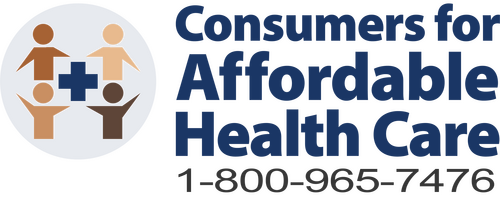New survey results regarding the Views of Maine Voters on Health Care Affordability
Contact:
Ann Woloson, Executive Director
awoloson@mainecahc.org 207-458-0416
Kate Ende, Policy Director
kende@mainecahc.org 207-485-1476
New survey results regarding the Views of Maine Voters on Health Care Affordability
Mainers remain concerned about the cost of health care and prescription drugs and many households are in medical debt. - Most Mainers believe that just one major medical event or illness could cause financial disaster.
A new survey of Maine voters regarding their views on Health Care Affordability was released today by Consumers for Affordable Health Care.
The comprehensive survey results show that over two-thirds of Mainers believe that just one major medical event would cause them financial disaster with four out of 10 reporting losing sleep over the cost of health care or insurance. Other highlights include:
Almost six out of ten Mainers with commercial insurance are concerned that they will experience a gap in their coverage because they cannot afford health insurance.
- More than one in three Mainers skipped or delayed going to the doctor when they were sick due to costs.
- One in four Mainers cut pills in half, skipped doses of a mediation, or delayed or did not fill a prescription due to cost.
- More than four out of ten Mainers have medical debt in their household.
- Nearly one in three Mainers were contacted by a collection agency within the past two years due to a medical bill. Of those who had been contacted by a collection agency, 83% reported it was due to a hospital bill.
Ann Woloson, Executive Director of Consumers for Affordable Health Care, indicated that while significant progress has been made to address affordability, the survey results demonstrate more needs to be done. “Maine policymakers and Governor Mills have taken significant steps to improve access to more affordable health care and coverage. Maine’s uninsured rate decreased from 8.0 percent in 2019 to 5.7 percent in 2021, representing the largest decrease of all states in the nation.[1] Other efforts, such as the creation of the Office of Affordable Health Care and the Prescription Drug Affordability Board, which review cost drivers and make recommendations to control rising costs, are also important. Maine’s Small Business Health Insurance Premium Relief Program has helped small businesses providing health coverage to employees save millions of dollars on what they pay for that coverage.
Woloson added, “The new survey data, however, shows more needs to be done to address the very real concerns Mainers have regarding increasing health care and prescription drug costs and to reduce medical debt in Maine.”
Woloson shared that nearly all Mainers surveyed (89%) believe it is highly important that everyone in the state has access to comprehensive health insurance. “The vast majority of Mainers support additional policy solutions that would reduce costs and improve access to health care and coverage.”
- Two out of three Mainers support ensuring all Mainers qualify for health coverage - regardless of immigration status.
- Nine out of ten Mainers support strengthening and enforcing hospital price transparency rules and putting limits on the prices hospitals can charge.
- Three out of four Mainers support increasing the amount of financial assistance nonprofit hospitals must provide.
- Three out of four Mainers support allowing people to buy into a government-administered health plan, that would be available to all Mainers and would compete with private insurance to lower costs.
The complete survey results can be found here.
The survey was conducted by Digital Research Inc., in December, 2022. Results presented have a margin of sampling error of +/- 4.4 percentage points at the 95% confidence level. All survey respondents were registered voters who live in Maine; final data were statistically weighted to reflect the demographics of the state’s population.
[1] https://www.census.gov/content/dam/Census/library/publications/2022/acs/acsbr-013.pdf


